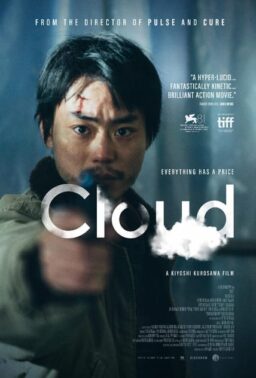Q: Ousmane Sembene’s “Moolaade” was my favorite film at your Overlooked Festival this year. I was so saddened to hear of his recent death.
Greg Nelson, Chicago
A. So was I. Sembene, 84, from Senegal, “The Father of African Cinema,” was also a gifted novelist, and his films took strong stands against what he perceived as the Western use of aid to undermine local agricultural communities. In his “Guelwaar” (1992), he was prescient in telling the story of a clash between Catholics and Muslims. But he enriched his politics with humor; the clash comes when a Catholic body is mistakenly buried in a Muslim cemetery, and the Muslims feel that to move it would demean their ancestors.
His last and best film was “Moolaade,” attacking the practice of female circumcision. Not a film you’d like to see, right? My review was a cry from the heart: “Sometimes I seek the right words, and I despair. What can I write that will inspire you to see ‘Moolaade’? This was for me the best film at Cannes 2004, a story vibrating with urgency and life. It makes a powerful statement and at the same time contains humor, charm and astonishing visual beauty.”
I met Sembene at Cannes, in the company of Daniel Talbot, whose New Yorker Films distributes all his work in the United States. We had a nice chat in the hotel where we were all staying. Afterward, Talbot pulled me aside. “In my opinion,” he said, “that is the greatest director in the world.”
Q. You likened the plans in the caper movie “Ocean's Thirteen” to a Scrooge McDuck scheme. Scrooge was the one with the fortress; it was the Beagle Boys who were always trying to break in.
Richard Peterson, Burkesville, Ky.
A. Not always. Surely you have not forgotten McDuck’s scheme to float a sunken treasure ship by sending Huey, Louie and Dewey underwater to pump it full of Ping-Pong balls?
Q. Last night I happened to see, for the first time, “Beyond the Valley of the Dolls” on the Fox Movie Channel. You wrote it for Russ Meyer. Watching the film, it seemed obvious that the character “Z Man” was based on Phil Spector. (His name is Ronnie, for God’s sake.) He dresses like a girl and shoots an actress in the mouth. What are you guys? A couple of prophets, or something? I ask because of the surprising turn of events regarding Spector, particularly as it relates to the movie.
G. Brooks Arnold, Los Angeles
A. Yes, the character was inspired by Phil Spector, but neither Russ nor I had even met him or knew much about him. In the movie, he’s called The Teenage Tycoon of Rock,” which comes from Tom Wolfe’s description of him as the “Tycoon of Teen.” Russ and I did not in fact, know that his wife was named “Ronnie” when we named him Ronnie.
I came up with the name “Z-Man” because after legendary columnist Mike Royko bought a Datsun 280-Z, some of the guys in O’Rourke’s Pub started calling him “Z-Man.” For balance, his last name required another “Z” and so I borrowed the last name of Ann Barzel, the legendary dance critic of Chicago Today. I cannot explain how the movie seemed to foretell later events. Maybe art influenced life. Did Spector ever see it? I don’t know. Would I want to see a rock-horror-exploitation-musical with a character based on me? Yes.
Q. I’ve been enjoying a few of your books lately and I ran across a most unforgettable title in the review for “Assault of the Killer Bimbos.” The title, of course, is “Blood-Sucking Monkeys of Forest Lawn.” I couldn’t seem to find any info on “Blood-Sucking Monkeys” at imdb.com or Amazon or even eBay. Could you shed some light on it?
Jay Wolfe Oklahoma City, Okla.
A. Best as I can recall that title originated with the geniuses at Troma Films, and Lloyd Kaufman may have listed it in an ad in a trade journal at Cannes, but it never got made. It’s more commercial, don’t you agree, than a title he actually did use: “Rabid Grannies”? Still unused, from a Cannes ad by practical jokesters: “Dig Me a Tunnel to Hitler!”
Q. I’ve noticed that you’re mentioning Cormac McCarthy more and more lately: in your recent article about the Coen Bros. movie, “No Country for Old Men“; in your review of “The Three Burials of Melquiades Estrada“; in the review of the Australian Western “The Proposition,” and a couple other times.
And yet his name does not appear in your review of “All The Pretty Horses“; in fact, you attribute the dialogue to Ted Tally. I’m curious. Is it because you had not read McCarthy before viewing the Thornton film?
Jonathan Glyn, Philadelphia
A. Yes. I devoured the McCarthy canon after hearing my sportswriter friend Bill Nack read aloud from All The Pretty Horses. Nack is one of the greatest reader-alouders alive, and as an impresario, I have “presented” him in two “concerts in words.” In my opinion, McCarthy’s best book is Suttree.
Q. The only reason I watched “Marie Antoinette” is that you gave it a four-star rating.
Cal Ford, Corsicana, Texas
A. Nine times out of 10, when I get an e-mail with a header like this, I ask myself what the message will be. There are usually three choices: (1) How much did they bribe you for that review? (2) I will never read you again, or (3) You suck.
Nevertheless, I opened your message, and here’s what I read: “It was worth every star. Thank you. I really enjoyed it.”
Thank YOU! Let’s all hear it for Cal Ford! It is still possible to be surprised and delighted in this gloomy old world.
Q. Since you’re a movie critic, I don’t suppose anyone will ask you about President Bush’s “stolen” watch, will they?
R. Joseph Ebert, Chicago
A. You’re right. Nobody did. That’s why I had to ask myself, because I can’t wait to answer.
Close scrutiny of photographs and research on the Web reveals that the president and I wear the same watch. It is a Timex Indiglo, with great big numbers on the dial, and it lights up real good.
And why does that belong in a movie critic’s column?
Because it is the Official Movie Critics’ Watch!
Honest. Many years ago, sitting through an endless movie at a film festival, I observed Kenneth Turan, film critic of the Los Angeles Times, light up his watch. I asked him about it. “This is the watch a movie critic needs,” he said. “In big, bright numbers, it tells you instantaneously what time it is, even though you’re sitting in the dark.”
Since then, any number of movie critics have adopted it. It is exactly like Bush’s, except that ours do not have the presidential seal.












